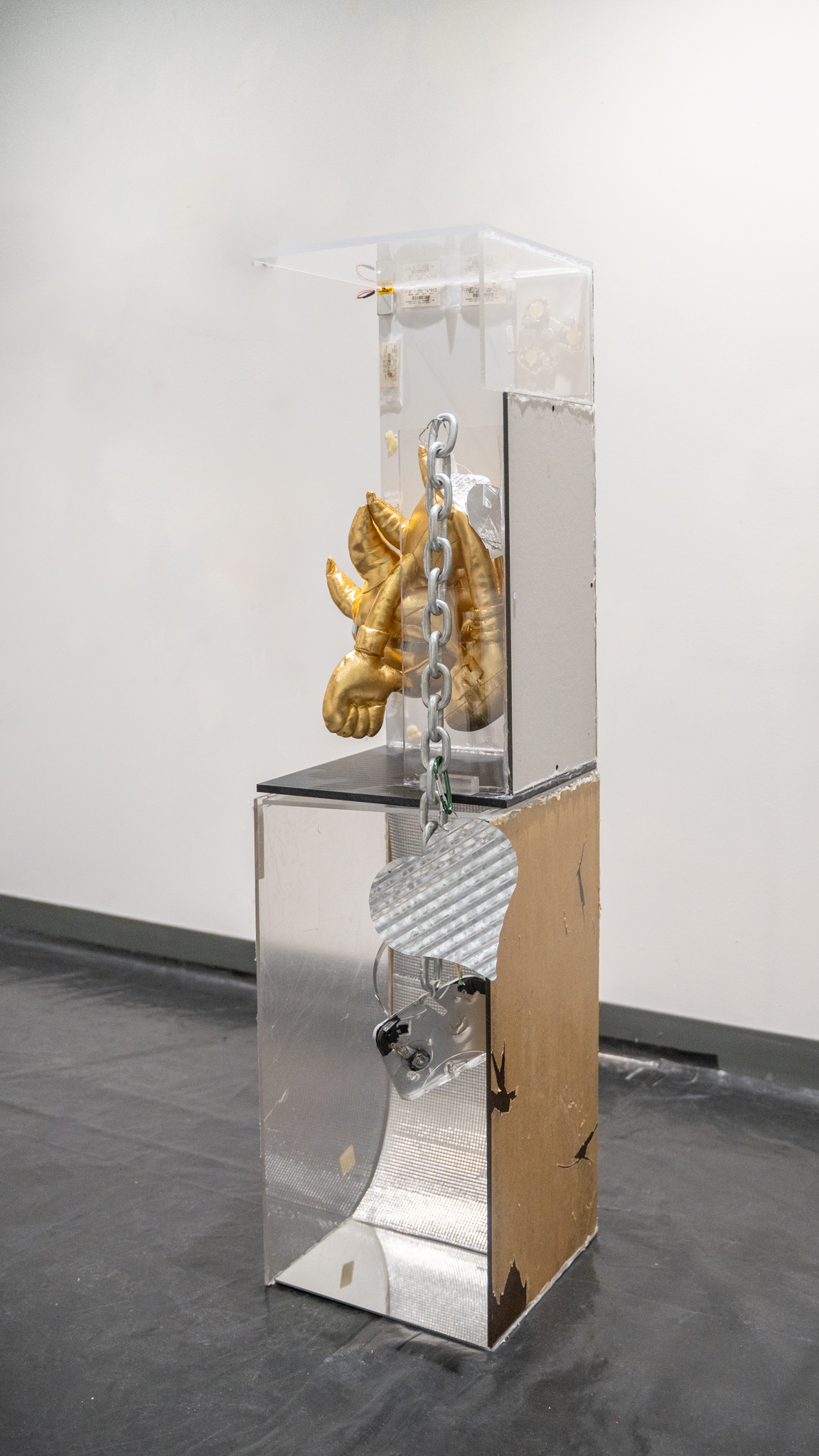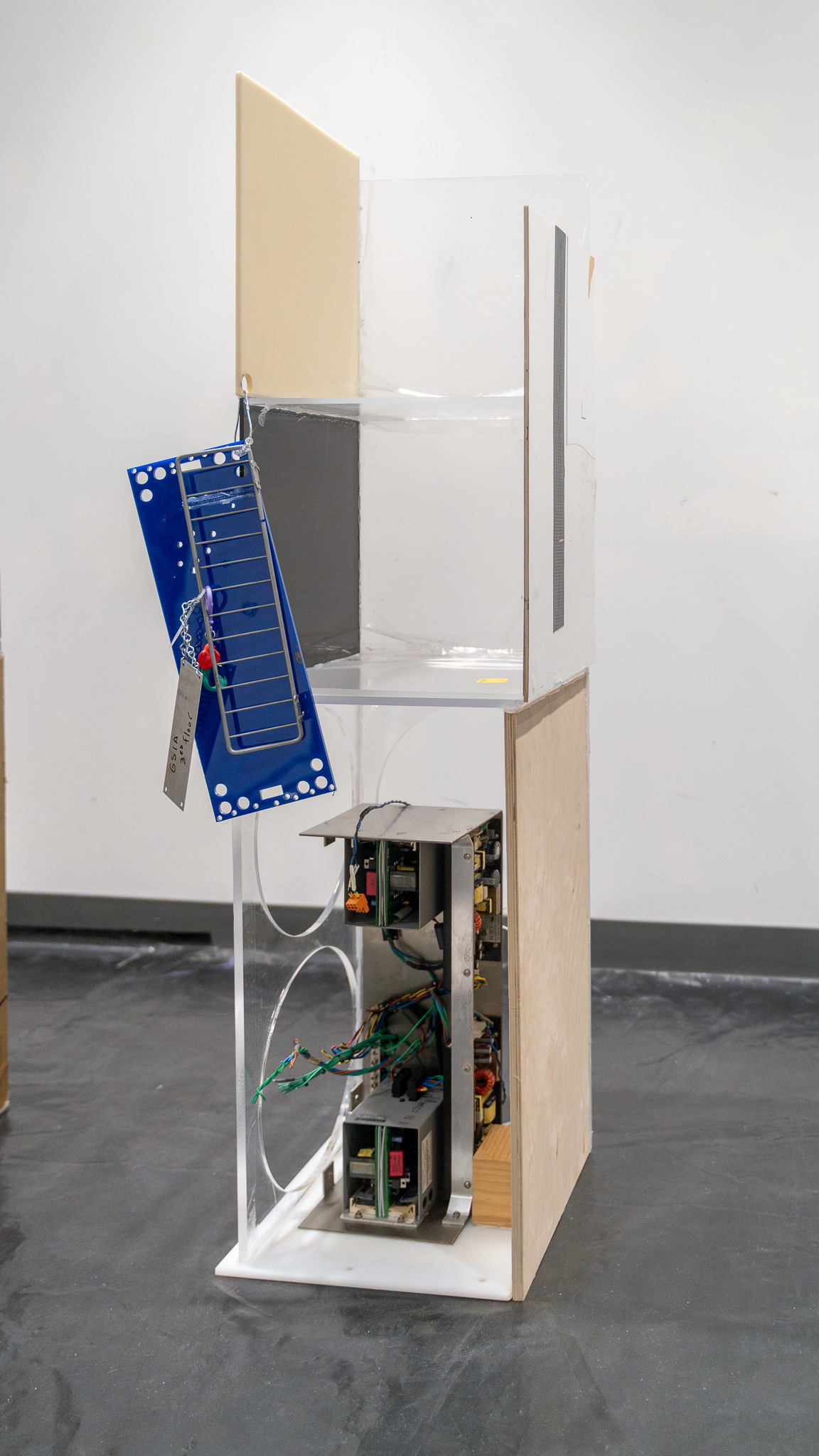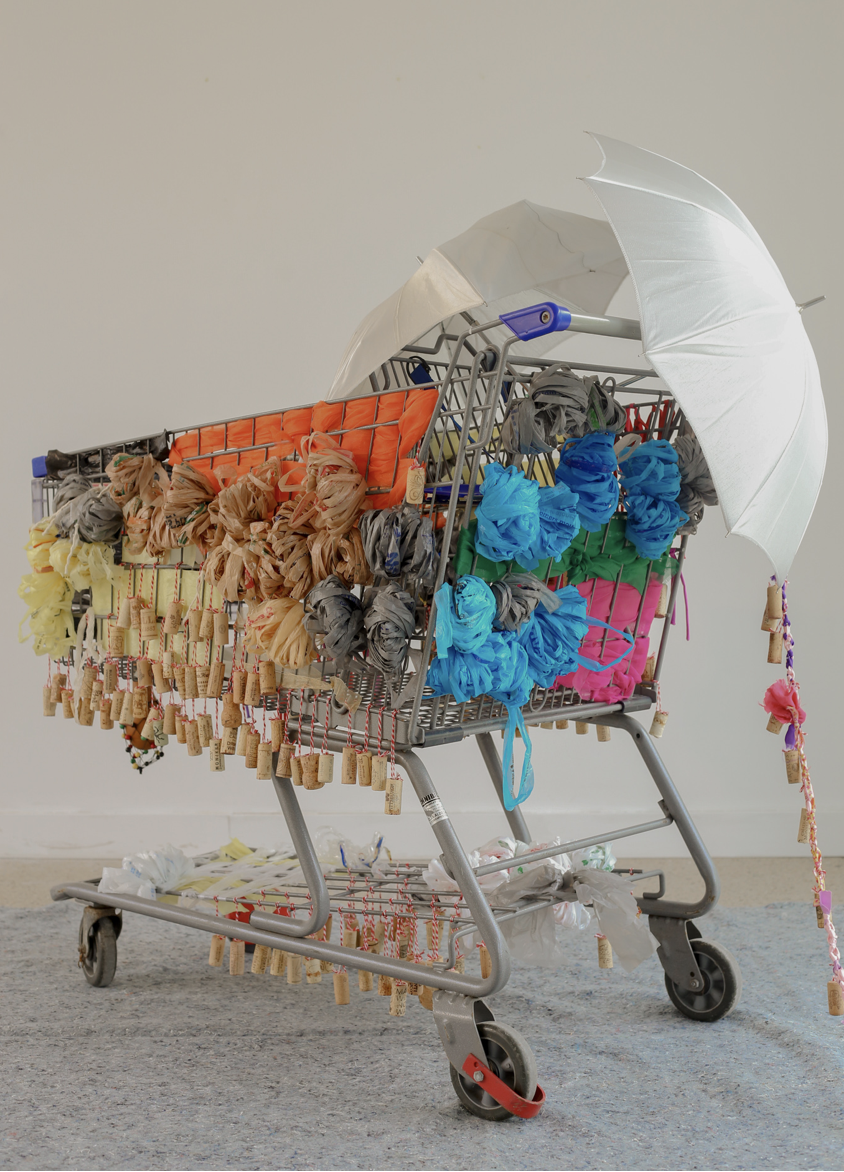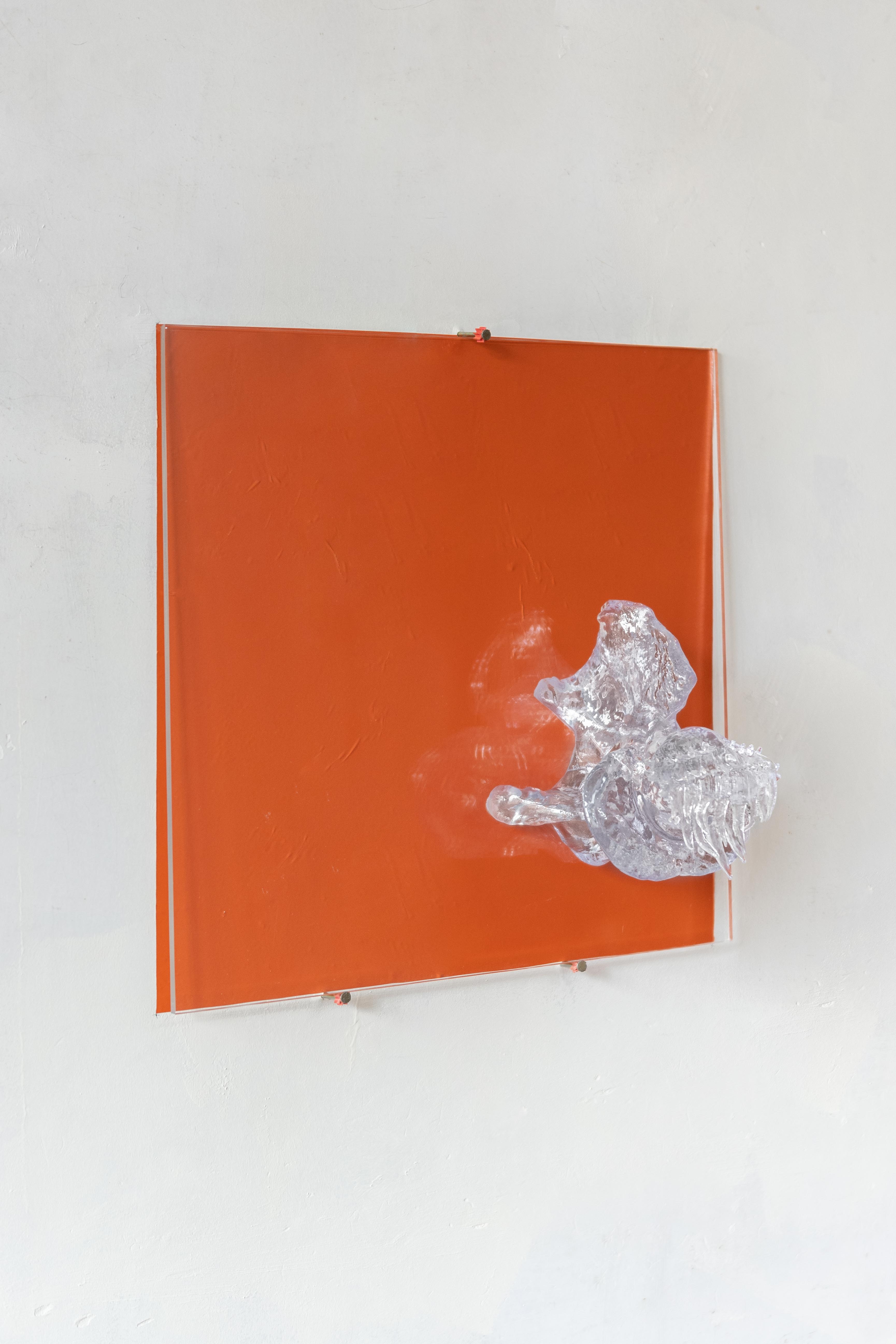
This series of sculptural installations reimagines discarded objects, transforming them into assemblages that oscillate between the functional and the surreal. A shopping cart adorned with bath poufs, clothespins, and an umbrella becomes a nomadic vessel, simultaneously evoking consumer excess and personal ritual. Nearby, an orange panel appears punctured by a ghostly plastic form, as if a digital glitch had materialized into physical space.
In another work, a golden, contorted figure is encased within an industrial plexiglass and mirrored structure, weighed down by metal chains—suggesting a tension between wealth, restriction, and spectacle. The final piece exposes the mechanical guts of an unknown device, its wires and circuits laid bare like the anatomy of an obsolete machine.
The artist embodies a modern hunter-gatherer ethos, engaging with objects as vital entities rather than mere consumables, resisting stability through fluidity. Rooted in Marxist critique, animism, and rituality, their work interrogates the supermarket as a site where commodity fetishism and spiritual resonance converge. Influenced by the Frankfurt School and the Cyborg Manifesto, they propose a complex web of human-object-animal relationships grounded in energy, ritual, and reflection.
Through this lens, Cheng’s practice takes on an animist approach to waste, imbuing discarded materials with new narratives and symbolic weight. By reconfiguring remnants of mass production into evocative hybrids, they invite viewers to reconsider the life cycles of objects, the aesthetics of decay, and the blurred boundaries between technology, commodity, and spirit.
In another work, a golden, contorted figure is encased within an industrial plexiglass and mirrored structure, weighed down by metal chains—suggesting a tension between wealth, restriction, and spectacle. The final piece exposes the mechanical guts of an unknown device, its wires and circuits laid bare like the anatomy of an obsolete machine.
The artist embodies a modern hunter-gatherer ethos, engaging with objects as vital entities rather than mere consumables, resisting stability through fluidity. Rooted in Marxist critique, animism, and rituality, their work interrogates the supermarket as a site where commodity fetishism and spiritual resonance converge. Influenced by the Frankfurt School and the Cyborg Manifesto, they propose a complex web of human-object-animal relationships grounded in energy, ritual, and reflection.
Through this lens, Cheng’s practice takes on an animist approach to waste, imbuing discarded materials with new narratives and symbolic weight. By reconfiguring remnants of mass production into evocative hybrids, they invite viewers to reconsider the life cycles of objects, the aesthetics of decay, and the blurred boundaries between technology, commodity, and spirit.


Installation view, H:150cm
ALDI market cart, plastic bags, wine bottle caps, sun umbrellas, wires, felt, pulleys

Untitled, 2022. 30x30x5cm Adhesive polyethylene stickers, acrylic sheets, 3D printing resins